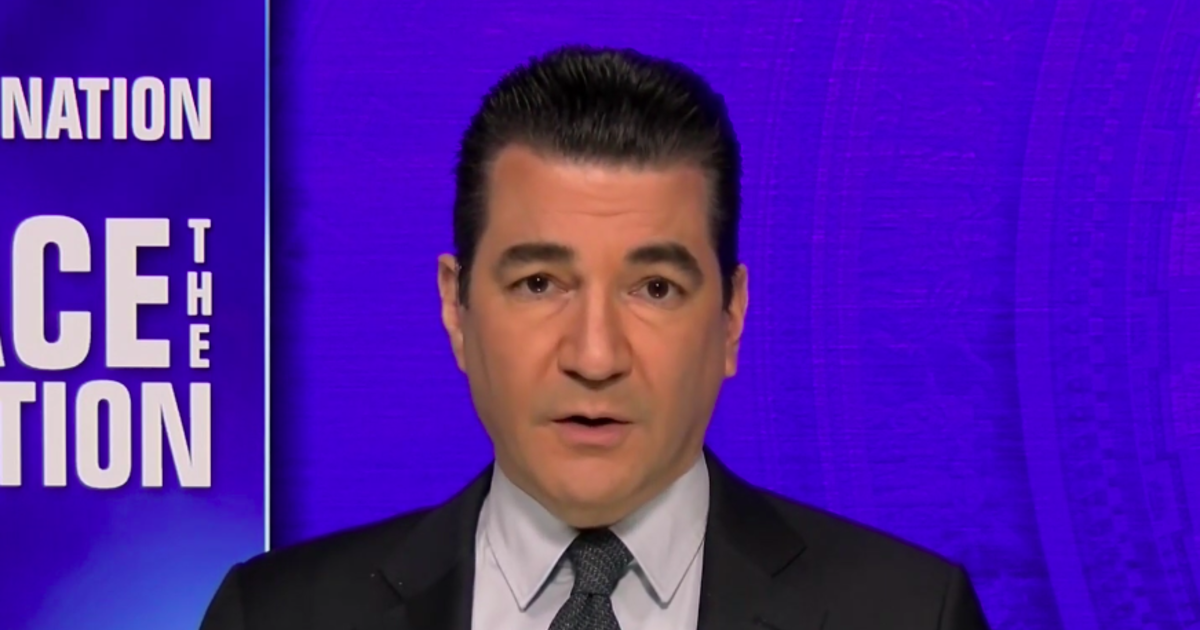Washington – Dr. Scott Gottlieb, former head of the Food and Drug Administration (FDA), said on Sunday that coronavirus vaccines currently being distributed in the United States should provide “reasonable protection” against new strains detected in the United Kingdom, South Africa and Brazil.
“I think that existing vaccines will offer reasonable protection against these new variants. And we may also be able to develop in a timely manner, perhaps in four or six months, a consensus strain that bakes in many of the different variations that we are seeing for reinforcements. available for fall, “Gottlieb said in an interview with” Face the Nation “. “So I think there is a reasonable chance that we will be able to stay ahead of this virus while it mutates.”
Gottlieb said as a “rule of thumb”, it can be assumed that vaccines will be about 20% less effective against new strains from Brazil and South Africa. But he stressed that even if there is a reduction in their effectiveness, ” you’re still getting very good protection “from mRNA vaccines, like the Moderna and Pfizer vaccines, which have been approved by the FDA.
The new variants, which are circulating globally, were identified in the last months of 2020 and early 2021 and have since been detected in the United States. The UK strain, B.1.1.7, was found in 33 states, while the South African strain, B.1.351, was found in two states. The Brazilian variant, P.1., In turn, was detected in one state, according to the Centers for Disease Control and Prevention (CDC).
In the United States, southern Florida and southern California have emerged as hot spots for the UK strain, which public health officials say is more contagious. In South Florida, the new variant accounts for between 5% and 10% of infections, and in Southern California, about 5% of infections are from the United Kingdom strain. But for the rest of the country, Gottlieb said the variant accounts for less than 1% of infections.
“I think in most parts of the country, it’s probably too little, too late,” he said. “We will probably get ahead of ourselves with our vaccines and the seasonal effect of the hot climate.”
The new strains of coronavirus underscored the need to accelerate the rate of distribution of the vaccine, and the Biden administration has taken steps to inject more injections into the arms of Americans, including sending doses directly to retail pharmacies.
Gottlieb said the new administration “has made a lot of progress” with distributing the vaccine, delivering up to 2 million doses of the vaccine in a few days. He predicted that by the end of March there will be 250 million vaccines delivered to the market if Johnson & Johnson’s one-dose coronavirus vaccine is authorized for emergency use by the FDA, with another 100 million vaccines delivered in April.
“If you assume a 60-40 split between the first doses and the second doses, you assume that about 60% of the supply that is coming to the market goes to the first doses. By the end of March, we will have delivered 150 million vaccines and in April, another 60 million ”, he said.” We will run out of demand. I mean, I think we need to start thinking about the demand side of this equation soon. “
In addition to promising to administer 100 million doses of vaccine in his first 100 days in office, President Biden also promised that most schools would reopen during that time. The CDC is expected to reveal guidelines this week on the safe reopening of schools, and the CDC’s director, Dr. Rochelle Walensky, suggested on Wednesday that vaccinating teachers is not a “prerequisite” for bringing children back to classrooms.
Gottlieb said that implementing mitigation actions, such as wearing masks, keeping distance and taking precautions in the classroom, should be a condition for opening schools.
“Schools are not a vector of transmission and, especially, children under 14 are less likely to become infected and transmit the infection,” he said. “I think it would certainly be good to be able to prioritize teachers to vaccinate them so that they are not at risk of getting the infection and spreading the infection. But I don’t think it is necessarily a prerequisite. I think schools have shown that they can open with safety if precautions are taken in the classroom. “
